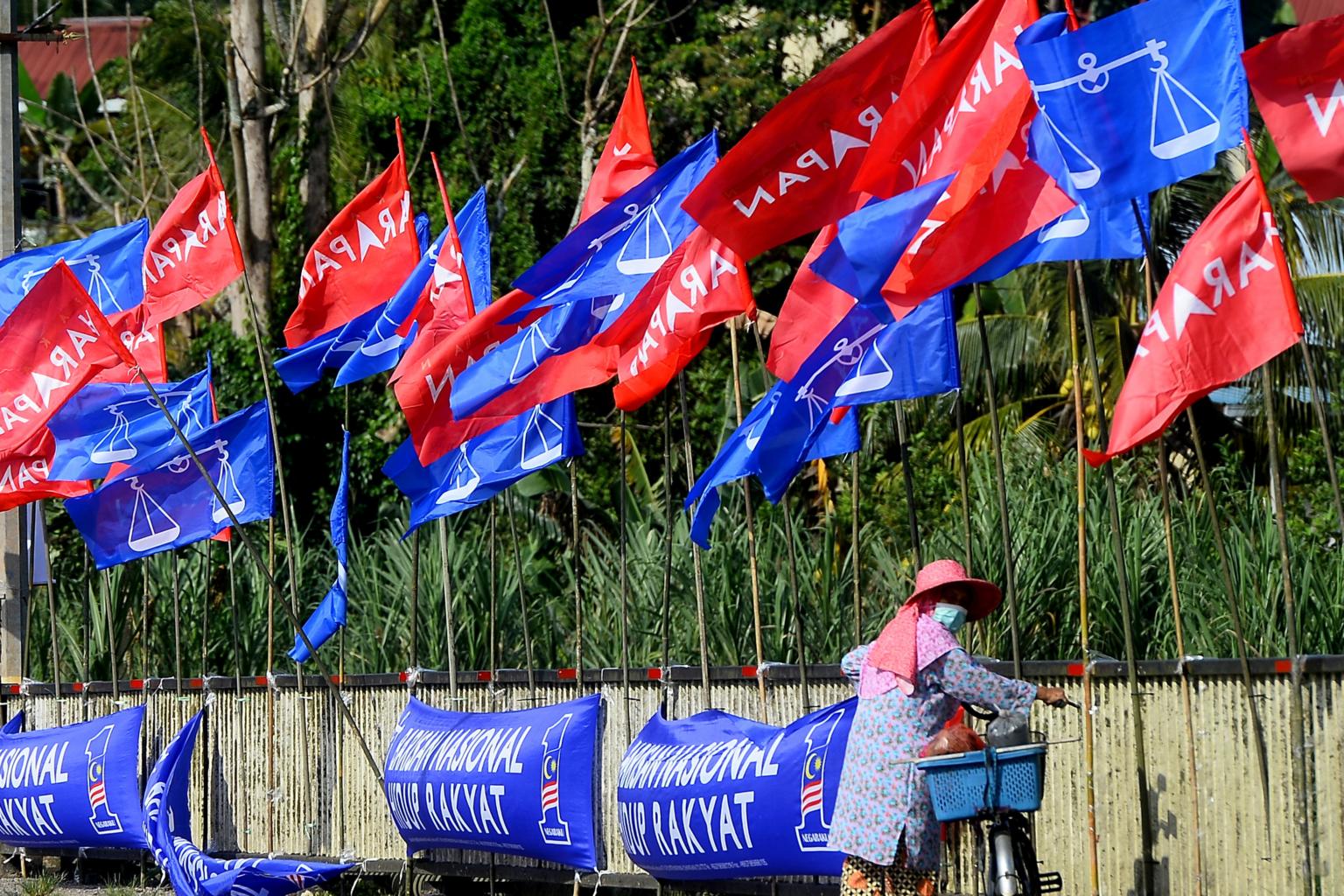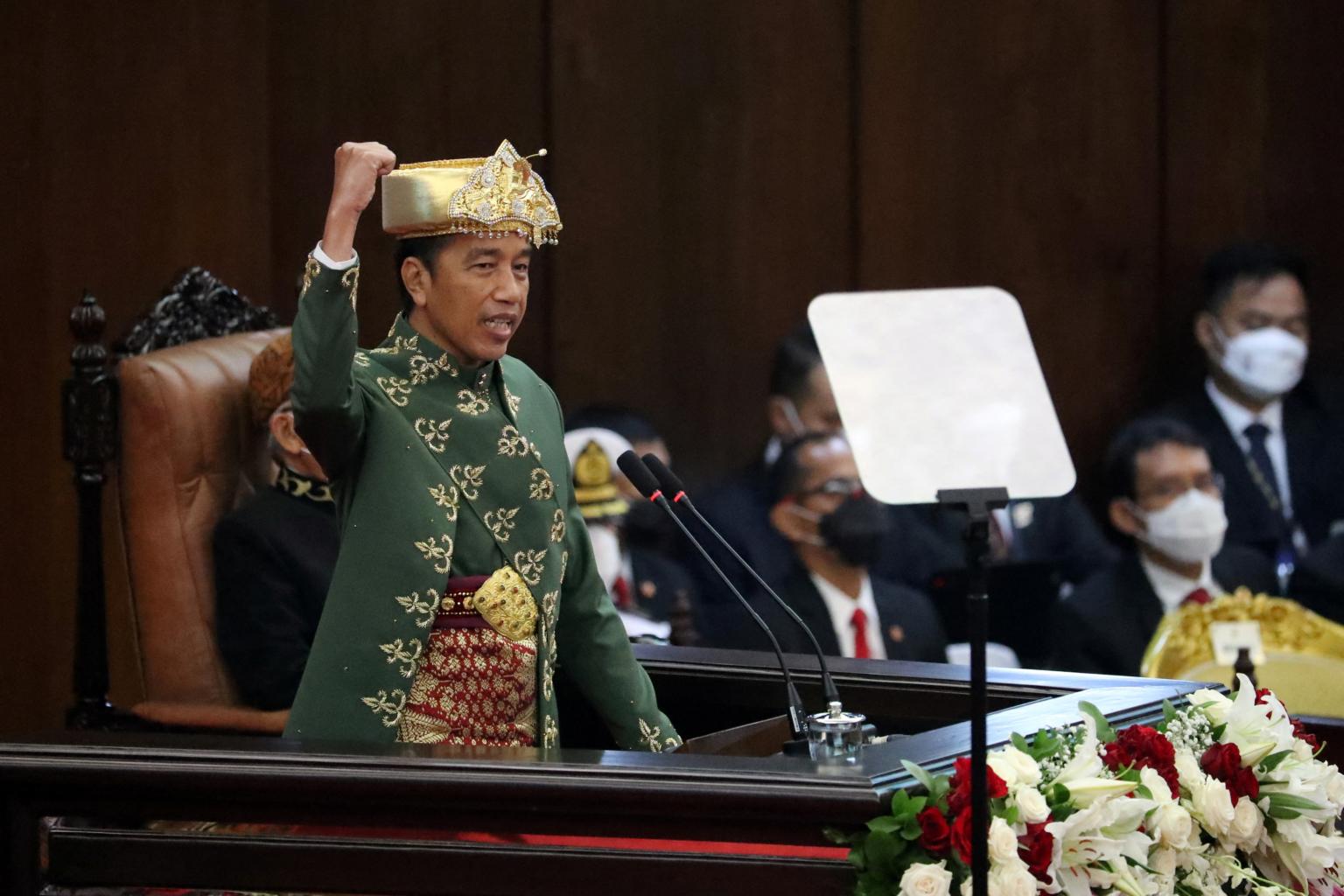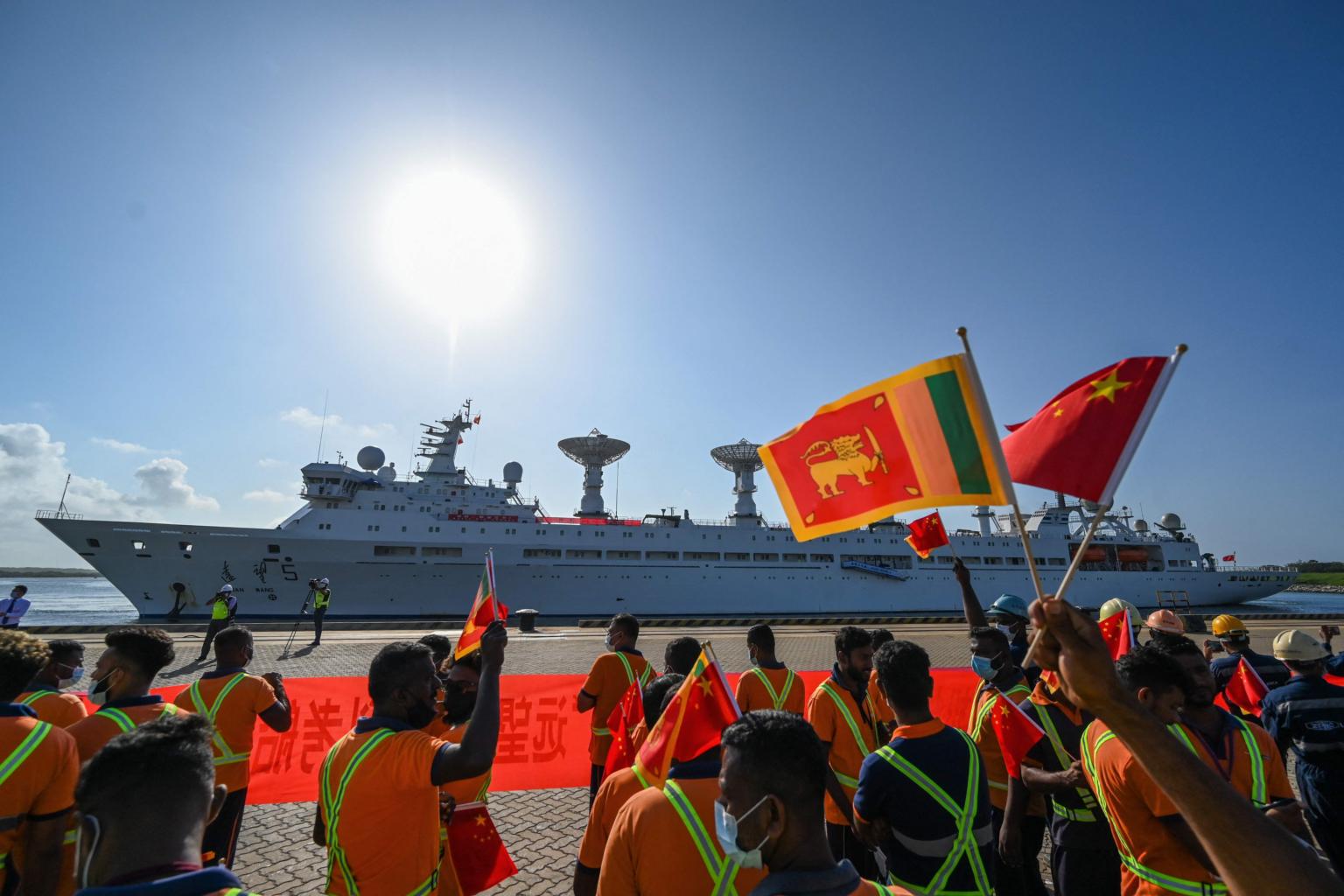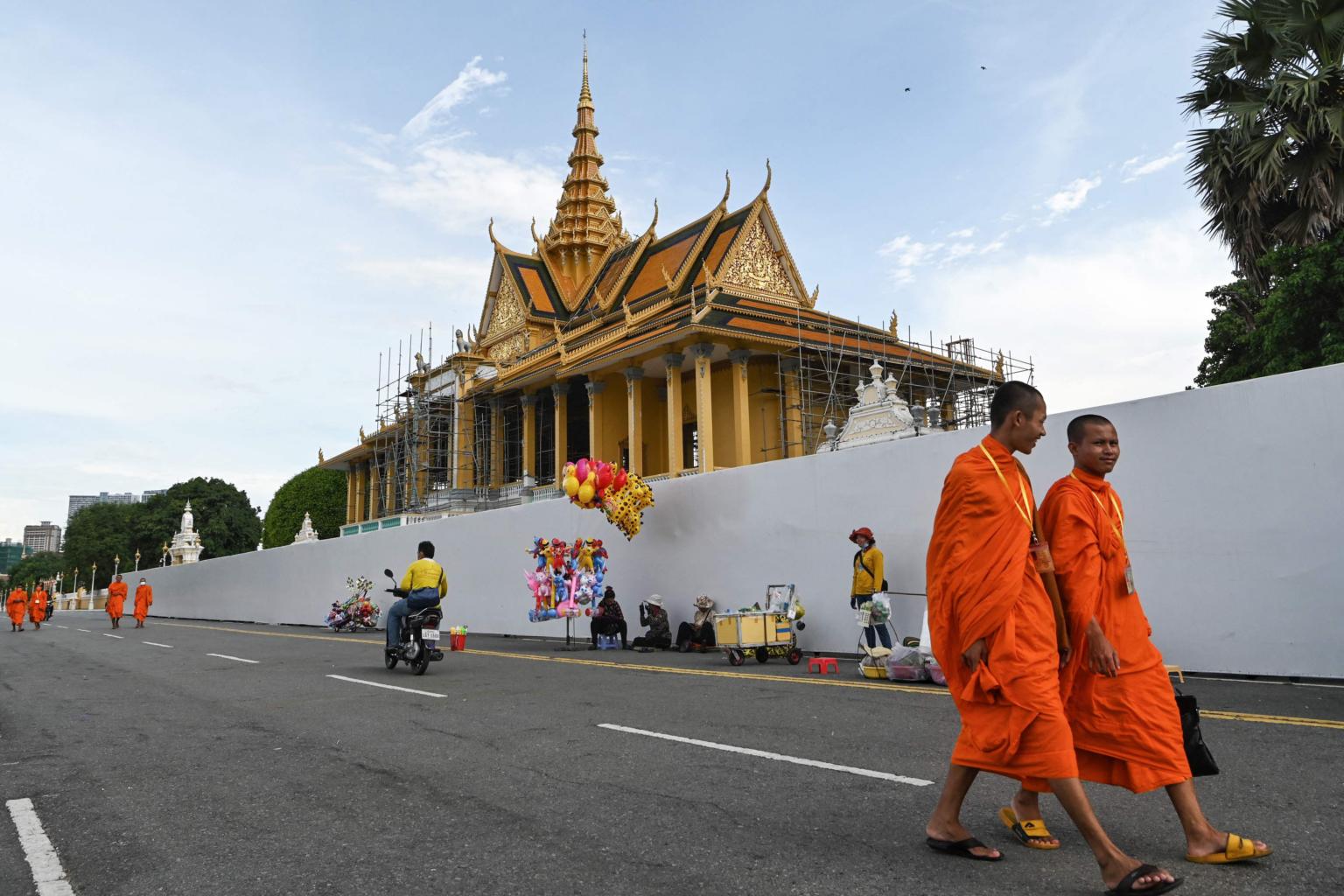ST Deep Dive: Malaysia's voters; Jokowi's legacy
Here's a round-up of recent commentaries and more by think-tanks in the region and elsewhere that could be of interest to those who watch Asia.
Sign up now: Get ST's newsletters delivered to your inbox

Follow topic:
Who gets to vote in Malaysia

With talk of a looming election in Malaysia, the composition of the electorate is being examined with keen interest.
Malaysia’s Constitutional Amendment Act 2019 lowered the voting age and created automatic voting registration. At the time, every party assumed that it had a political advantage in enabling 5.8 million new voters into the system, and bringing the total to 21.02 million.
Approximately 6.85 per cent of voters are now aged between 18 and 20, mostly based in urban areas. The then coalition government, Pakatan Harapan, pushed strongly for lowering the voting age, as it had probably been the primary beneficiaries of youth votes in the past.
Barisan Nasional and Parti Islam SeMalaysia, on the other hand, insisted on automatic voter registration; likely assuming that their rural-centred voter base would expand if the logistic difficulties of registration were removed.
What does this mean for the election?
The battlegrounds are likely to be semi-urban and rural seats that are bumiputera- and Malay-majority, where median income, unemployment and inequality are below the national average, says ISEAS – Yusof Ishak Institute visiting fellow James Chai.
In the same vein, he writes, urban seats that are Chinese-majority and wealthier are likely to be ignored; long-term malapportionment has exacerbated the difference between each seat, making campaigning in such seats a poor use of election resources today.
For new voters, the effects of the Act are not evenly distributed. Smaller parties will also find it increasingly hard to compete.
Jokowi’s legacy

One way or another, Indonesia’s presidents have left their mark on the nation’s foreign policy.
What will be Mr Joko Widodo’s legacy, now that he has two years left to finish his term?
Throughout his first and second terms, Mr Widodo has made it unequivocally clear that he is a domestic president, concerned with Indonesia’s need for infrastructure development, bureaucratic reform, cutting red tape, and developing human capital.
Although his Global Maritime Fulcrum initiative fizzled out, Mr Widodo seemed to have caught a second wind and became more personally involved in foreign policymaking during the Covid-19 era, say Dr Adhi Priamarizki and Mr Keoni Marzuki in this paper for the S. Rajaratnam School of International Studies.
In 2020, Mr Widodo made his first appearance at the United Nations General Assembly, albeit virtually, having sent then Vice-President Jusuf Kalla in his stead throughout his first presidential term.
More recently, he used Indonesia’s Group of 20 presidency to speak with Russian President Vladimir Putin over the Russia-Ukraine war.
Still, say the authors, it is clear that Mr Widodo’s recent international activism continues to be inextricably linked to his domestic agenda.
Pakistan in crisis

With the falling Pakistani rupee emblematic of its economic struggles, and political tensions rising because of an assertive military facing off against popularly elected legislators, Pakistan seems set for a period of deep instability.
The current political instability started in April 2022 when the Pakistan Parliament ousted Prime Minister Imran Khan and elected a new Leader of the House, Mr Shehbaz Sharif, writes Dr Danish Khan, an assistant professor of political economy at Franklin & Marshall College, United States, in this paper for the Institute of South Asian Studies.
At the moment, the military establishment, the superior judiciary and the mainstream political parties are in a logjam, he says.
Still, the crisis also provides a potential opening for democratic consolidation, defining and establishing the basic rules of the game, that is, supremacy of Parliament and restricting the de facto role of the military establishment and the judiciary to what is prescribed in the Constitution.
Debt, no trap

Readers of this newspaper would have noticed last week’s column by retired senior colonel Zhou Bo, formerly of the People’s Liberation Army (PLA), criticising India’s and the United States’ objections to the docking in Sri Lanka’s southernmost port of Chinese tracking ship Yuan Wang 5.
To many, the arrival of the massive vessel might seem like a victory for Beijing in this strategically important island nation.
It is, in fact, nothing of the kind, because it reinforces the image of China as a predatory imperial power that is trying to exploit Sri Lanka for its own purposes, says South Asia expert Rupert Stone in this piece for the Lowy Institute.
This is because Beijing has done little to help the country through its devastating economic meltdown, providing far less aid than India.
Mr Stone says that while accusations of nefarious Chinese designs on Hambantota might be bogus, they are widely believed.
Also, China has not done itself any favours with the PLA visit this month, which plays into concerns that it is trying to militarise the island, handing New Delhi a propaganda victory.
And in Cambodia...

For the world outside, Cambodia is the classic client state of China, a supposed lackey that frequently does Beijing’s bidding at key regional summits.
However, China has crucially contributed to Cambodia’s development as top investor and donor, says Dr Chanrith Ngin, Wang Gungwu Visiting Fellow at the ISEAS – Yusof Ishak Institute.
Between 1994 and 2021, Cambodia received US$41 billion (S$57 billion) in foreign direct investment, of which China accounted for more than 40 per cent.
Chinese investment in 2021 comprised 50 per cent of overall approved investment of US$4.35 billion, followed by the United States (4 per cent) and Singapore (3 per cent).
China has increased its development aid to Cambodia through the Belt and Road Initiative; by 2019, 48 per cent of Cambodia’s official development assistance worth about US$7.22 billion came from China.
Do not worry about a debt trap; Cambodia has a conservative debt-management strategy, he adds.

